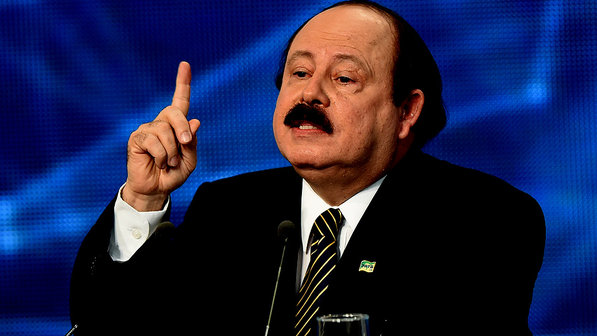By Delisa Morris
Impunity Watch Reporter, South America
BUENOS AIRES, Argentina– The last military president in Argentina’s 1976-1983 dictatorship received another prison sentence on Tuesday, this time for the kidnapping and torture of 32 factory workers.

A court in Buenos Aires sentenced Reynaldo Bignone to 23 years in prison for the human rights violations. The workers were forcibly disappeared by the military during the so-called Dirty War against leftist dissidents and other opponents.
The 86-year-old Bignone is already serving combined life sentences in more than two dozen cases involving crimes against humanity.
Bignone, was convicted in 56 cases involving torture, illegal detentions and other crimes in one of Argentina’s largest torture centers, the Campo de Mayo army base. Supposedly 4,000 dissidents were taken to the base and only 50 came out alive.
The same base also had a maternity center where dissidents would give birth. Their babies were taken away by an official and adopted into a military family. Nearly 400 infants were kidnapped after birth before their mothers were tortured to death. About 102 people born to vanished dissidents have since recovered their true identities with the aid of the Grandmothers of the Plaza de Mayo, a leading human rights group, which helped create a national database of DNA evidence to match children with their birth families.
Bignone, was appointed president by the military junta in the final years of the dictatorship and it fell to him to protect the military as Argentina returned to democracy. He granted amnesty to human rights violators and ordered the destruction of documents related to torture and disappearances of political opponents before agreeing to transfer power to the democratically elected Raul Alfonsin.
He has denied responsibility for the crimes in past court proceedings.
“In times of peace the disappearance of a single person means one thing and in times of war it means something else,” said Bignone.
The Buenos Aires court also sentenced former Gen. Santiago Omar to life in prison for his role in dozens of illegal raids, kidnappings, torture and the killing of three people.
According to human rights groups about 30,000 people died or disappeared in Argentina’s brutal dictatorship.
For more information, please see:
Charlotte Observer.com – Another Sentence for Argentine Ex-Dictator – 7 Oct. 2014
BND.com – Another Sentence for Argentine Ex-Dictator – 7 Oct. 2014
ABC News – Another Sentence for Argentine Ex-Dictator – 7 Oct. 2014
Star Tribune – Court Sentences Former Dictator Reynaldo Bignone to 23 Years in prison – 7 Oct. 2014
Huffington Post – Argentine Dictators Go On Trial For Baby Thefts – 1 March 2011



